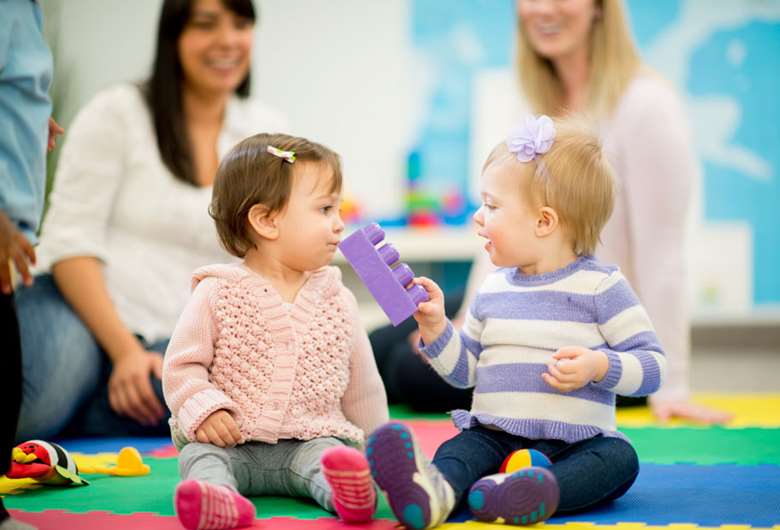SEED: Report reveals benefits of ECEC at age three
Monday, July 24, 2017
Nursery World sums up the key findings of the latest research from the Study of Early Education and Development.

SEED is a major study designed to help the Department for Education (DfE) provide evidence on the effectiveness of early years education and to identify any short- and longer-term benefits from this investment.
It is being undertaken by a consortium including NatCen Social Research, the University of Oxford, Action for Children and Frontier Economics.
The latest report, ‘Impact Study of Early Education Use and Child Outcomes up to Age Three’, focuses on the take-up of early education for funded two-year-olds and explores how early childhood education and care (ECEC) may be related to development at the age of three.
Starting with a cohort of 6,000 children, SEED aims to study children at the ages of two, three, four, five and seven to see how variation in ECEC experience may be associated with cognitive and socio-emotional development.
The latest report addresses two main objectives:
1. To explore the impact of introducing free early education for disadvantaged two-year-olds on the take-up of early education for two- to three-year-olds in the year following the introduction of the policy.
2. To study the associations between the amount of differing types of ECEC and child development, as well as associations between child development and aspects of the home environment.
Summary of the report’s key findings
Introducing funded early education from two years for disadvantaged families
In the year following the introduction of funded early education for the 20 per cent most disadvantaged two-year-olds (which started in September 2013) and for the 20 per cent to 40 per cent moderately disadvantaged (brought in in September 2014), there was no clear evidence of an increase in take-up of early education in these groups. There is therefore no strong evidence of the effect of the policy in the first year following its introduction.
There was an indication of some increase in take-up of early education for the cohort of the 20-40 per cent group who were eligible for three terms of funded early education, as compared with the cohort eligible for two terms of funded early education. This increase was 4.7 hours per week.
The absence of clear evidence of an increase in the use of early education in the first year after the introduction of funded childcare for disadvantaged two-year-olds may indicate that local authorities and families needed time to adjust. Census data from the DfE (2017) indicates there is now an increased use of early education for eligible twos.
Other studies of the effects of policy change, for example, the National Evaluation of Sure Start, found it can take several years for a policy change to be evident.
The relationship between ECEC aged two to three and children’s cognitive and socio-emotional outcomes at age three
- Good evidence that three-year-old cognitive and socio-emotional outcomes were influenced by ECEC between the ages of two and three.
- Use of formal group ECEC –nursery, nursery class, nursery school, playgroup – was associated with better socio-emotional outcomes, through more pro-social behaviour and fewer emotional symptoms and peer problems.
- Use of formal individual care (childminders) and informal (friends, relatives, neighbours and nannies) was associated with higher cognitive verbal ability. Childminder use was associated with better socio-emotional outcomes with fewer emotional symptoms and more behavioural self-regulation.
- Formal group ECEC was also associated with two poorer socio-emotional outcomes: conduct and emotional self-regulation (see box).
- There was no clear evidence that the effects of ECEC use differed according to family disadvantage, neighbourhood deprivation or region. This suggests that ECEC use has a positive benefit on cognitive and socio-emotional outcomes at the age of three regardless of a family’s disadvantage level. But given the lower starting point of disadvantaged children, ECEC may be of particular importance for this group.
The effects of the home environment on child outcomes
- A better home learning environment (HLE) score was associated with higher cognitive scores and fewer socio-emotional problems for children at the age of three.
- Better child cognitive and socio-emotional outcomes were also associated with higher parental ‘limit setting’ scores and a better parent/ child relationship.
- Investigating the interaction between the effects of ECEC use and HLE found these to be largely independent of each other. An association between formal individual ECEC (childminder) use and non-verbal ability was found only for children with low HLE scores. For the remaining outcome variables there were no interactions between the effects of HLE and ECEC use for all children. This indicates that even children having a rich home learning environment still stand to benefit from spending time in ECEC.
COMMENTARY
 Edward Melhuish, Professor of human development, University of Oxford and Birkbeck, University of London, and lead author of the report
Edward Melhuish, Professor of human development, University of Oxford and Birkbeck, University of London, and lead author of the report
Generally, we find children who have early education and care from two years of age are doing better at age three. The benefits appear right across the social spectrum for all families, no matter how rich or poor – there are benefits for all children.
Those children in individual care have better language outcomes, but social outcomes are not affected. This probably is due to more one-to-one interaction in individual settings. We did look separately at childminders who are being paid by the funded two-year-old offer, but there are similar effects for individual care, whether children are funded or non-funded. From a child’s point of view, it doesn’t matter where the funding comes from.
In group care, in nurseries and pre-schools, children’s social and emotional development improved – children are mixing with a wider range of adults and there are more children with more peer play, and social skills develop.
We find that parenting is also important. For example, the home learning environment, which was originally highlighted in the EPPE (Effective Preschool and Primary Education) study, deals with the learning opportunities offered in the home. For example, this would include activities such as playing, reading to the child, and opportunities to paint and draw, play with shapes, letters and numbers, learning songs, or nursery rhymes, and visits to the library.
We find that where the home learning environment is better, children’s cognitive and social development is better. Also parents respond differently when a child is naughty. Where parents take active steps to set limits with children’s behaviour, we see benefits for children’s development.
There was one negative finding for a very small proportion of children, where around 3 per cent of children who were in group care for more than 35 hours a week had more conduct problems and less emotional self-regulation. When we analysed this further, it was primarily for children who had started in group care early, often in the first year of life. They had problems controlling their emotions, and showed more conduct problems, for example temper tantrums. We found similar effects in the EPPE study, where we followed children to the end of school, and we found that the effect of high levels of group care starting early in life had washed out later on by the end of primary school.
In September the Government is increasing the 15 hours a week free childcare for three- and four-year-olds to 30 hours a week. The reason is to help women’s participation in the workforce. If parents are worried about the longer hours of childcare, one possible solution is to share long hours between individual and group care, and this should avoid any problems.
It’s clear that early childhood education and care is having benefits for the great majority of children. We’re following this up further at four, five and seven. At age three we had 4,580 children and families in our study, and we would like to follow them to the end of school, as we did with the EPPE study, which showed the positive effects of good-quality early education right through to the end of school.
- Read the reports here




